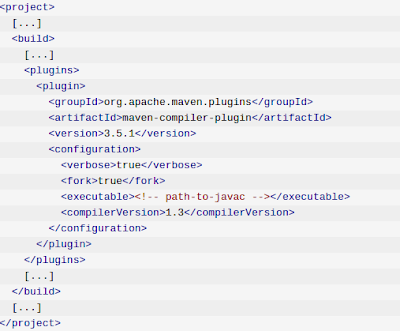appassembler-maven-plugin
The main goal of the Appassembler Maven plug-in is to overcome this pain and to produce deployable daemons in various configured OSs.
The Application Assembler Plugin is a Maven plugin for generating scripts for different OSs for starting java applications.
All artifacts
(dependencies + the artifact from the project)
classpath in the generated bin scripts.
- Below shows the appassembler maven plugin
<!-- http://mvnrepository.com/artifact/org.codehaus.mojo/appassembler-maven-plugin -->
<dependency>
<groupId>org.codehaus.mojo</groupId>
<artifactId>appassembler-maven-plugin</artifactId>
<version>1.3</version>
</dependency>
maven-assembly-plugin
So Assembly Plugin for Maven is intended to group the project output together with its dependencies, modules, site-documentations and other files into a one distributive archive.
To use the Assembly Plugin in Maven, you simply need to:
- choose or write the assembly descriptor to use(assembly.xml)
- configure the Assembly Plugin in your project's pom.xml, and
- run "mvn assembly:single" on your project.
assembly descripter
- 2 types of descripters
handle many common operation like packaging an artifact
to a zip archive along with the site documentation
http://maven.apache.org/plugins/maven-assembly-plugin/descriptor- refs.html
Above link gives a good description on such descriptors
2) Your own descriptor
Other than the common assembly requirements, using this
type of descriptors we can specify
- the type of archive to make
- the content in the assembly
- the way the dependencies and modules are
bundled in assembly
<!-- maven assembly plugin. --><plugin> <artifactId>maven-assembly-plugin</artifactId> <executions> <execution> <id>zip</id> <phase>package</phase> <goals> <!-- Assemble an application bundle or distribution. --> <goal>single</goal> </goals> <configuration> <!-- assembly.xml file contains the configurations of assembly plugin. --> <descriptor>assembly.xml</descriptor> </configuration> </execution> </executions> </plugin>
examples can be found in the following link
http://maven.apache.org/plugins-archives/maven-assembly-plugin-2.6/examples/multimodule/index.html
importanthttp://maven.apache.org/plugins-archives/maven-assembly-plugin-2.6/examples/multimodule/index.html
maven-jar-plugin
This plugin provides the capability to build jars. The jar is the default packaging type.So it is not required to set it in most cases.- jar:jar create a jar file for your project classes inclusive resources.
- jar:test-jar create a jar file for your project test classes .
How to build a jar file
When you want to create a jar file with your Maven project, first create a pom file with at least the below configs.
"jar" is the default packaging type. So not required to set in the above case. Using the below command we can create a artifact
mvn package
Generated jar file is in the target directory
The resulting jar ===> compiled classes + src/main/resources
So what could be the use of the maven jar plugin..?
- You can customize the manifest by default. SInce the jar plugin uses Maven Archiever , it does not create the implementation details in the manifest by default. Say explicitly in the plugin configuration as required
https://maven.apache.org/plugins/maven-jar-plugin/examples/manifest-customization.html
-Can include and exclude content from the jar archive
https://maven.apache.org/plugins/maven-jar-plugin/examples/include-exclude.html
- Can create additional attached jar artifacts from the project
https://maven.apache.org/plugins/maven-jar-plugin/examples/attached-jar.html
- can create a jar containing test classes
https://maven.apache.org/plugins/maven-jar-plugin/examples/create-test-jar.html
maven-compiler-plugin
- compiler plugin is used to compile the sources of your project.
- The default compiler is javax.tools.JavaCompiler which is used to compile the java sources
- To force the plugin to use javac, configure the plugin option forceJavacCompilerUse.
- There are two main goals for the Maven plugin. Each of these goals are bound to their respective phases in the Maven Life Cycle. So they get automatically executed in those respective phases.
- Below shows a simple configuaration of Maven Compiler Plugin
- To compile sources with a different JDK, use the below configuration with fork set to true and compilerVersion with the version required
maven-antrun-plugin
Provides the ability to run ant tasks from within maven. Other than that anyrun plugin is also used to unpack the artifacts of the project
You can embed your ant scripts in the pom file. But it is encouraged to move all the Ant tasks to build.xml file call that file from pom.xml





No comments:
Post a Comment